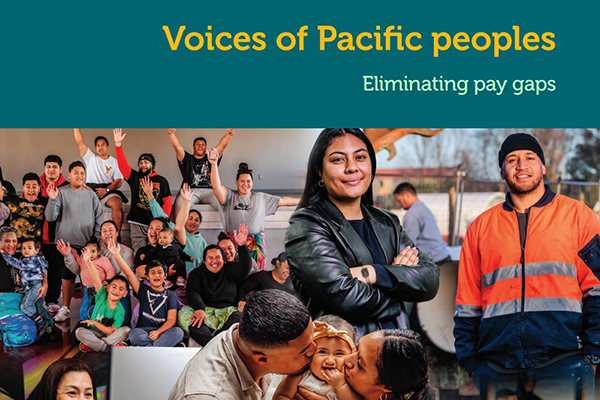 Employers are being urged to set targets and timeframes to increase the representation of Pacific peoples and other minorities in middle and senior management and monitor and close gender and ethnicity pay gaps.
Employers are being urged to set targets and timeframes to increase the representation of Pacific peoples and other minorities in middle and senior management and monitor and close gender and ethnicity pay gaps.
The recommendations are included in a report covering findings from the ground-breaking national inquiry into the Pacific Pay Gap, which also suggests disclosing pay bands for advertised jobs, refraining from asking about previous salaries during the recruitment process and removing pay confidentiality clauses from employment agreements.
Last month, Human Rights Commission Te Kāhui Tika Tangata handed its Voices of Pacific people: eliminating pay gaps report to Government.
It shed light on the lived experiences of Pacific workers while also exploring what government, employers and unions need to do to urgently address pay inequity.
Equal Employment Opportunities (EEO) Commissioner Saunoamaali’i Karanina Sumeo says the personal stories of Pacific workers are deeply heart-breaking.
“For the first time, many of them have opened up or revisited old wounds. But in the process, they have also felt seen, reassured, and validated about their tragic experiences of workplace discrimination and racism,” said Sumeo.
Pacific workers also shared aspirations for themselves and their families and solutions to the Pacific Pay Gap.
“Pacific workers told us they want pay transparency, the minimum wage lifted to the living wage, visible pay scales, mentorship, incentives and progression pathways,” says Lisa Meto Fox, the Pacific Pay Gap Inquiry Advocacy Manager.
“Research through our inquiry provides evidence that racism, unconscious bias and workplace discriminatory practices are some of the reasons why Pacific workers are being held back from realising their full potential in the workplace,” said Sumeo.
The report lays out the challenge, framework, and recommendations to close the Pacific Pay Gap in the next 20 years.
Key findings at a glance:
- Prejudice against Pacific names and undervaluing of qualifications and work experience in the recruitment process
- Lack of pay transparency
- Pacific men being promoted over Pacific women in organisations
- Experiences of interpersonal and workplace discrimination, including racism
- Feeling worthy of more pay and development opportunities but not knowing how to talk to managers about it and feeling anxious about negative repercussions
- Being paid little more than minimum wage despite years of accumulated skill and experience in the same job
- Remaining a contractor, casual worker, or seasonal worker for the same employer for years without an offer of secure employment
- Limited awareness of rights and obligations between employees/contractors and employers on issues of pay, leave and health and safety
- Uneven access to training opportunities
- Failure to recognise and remunerate talent, cultural skills, knowledge, and experience
Key recommendations for employers:
- Collect employee and contractor ethnicity data.
- Monitor and report on pay gaps by gender and ethnicity, and develop follow-up equity plans to close the gaps within a set timeframe.
- Disclose the pay bands for jobs when advertised.
- Refrain from asking about previous salaries during the recruitment process.
- Remove pay confidentiality clauses from employment agreements.
- Set targets and timeframes to increase the representation of Pacific peoples and other minorities in middle and senior management and corporate governance.
The report also recommended the Government urgently introduce legislation requiring pay transparency and amend the Equal Pay Act 1972 to expand prohibited grounds to include ethnicity and disability as first priority.


